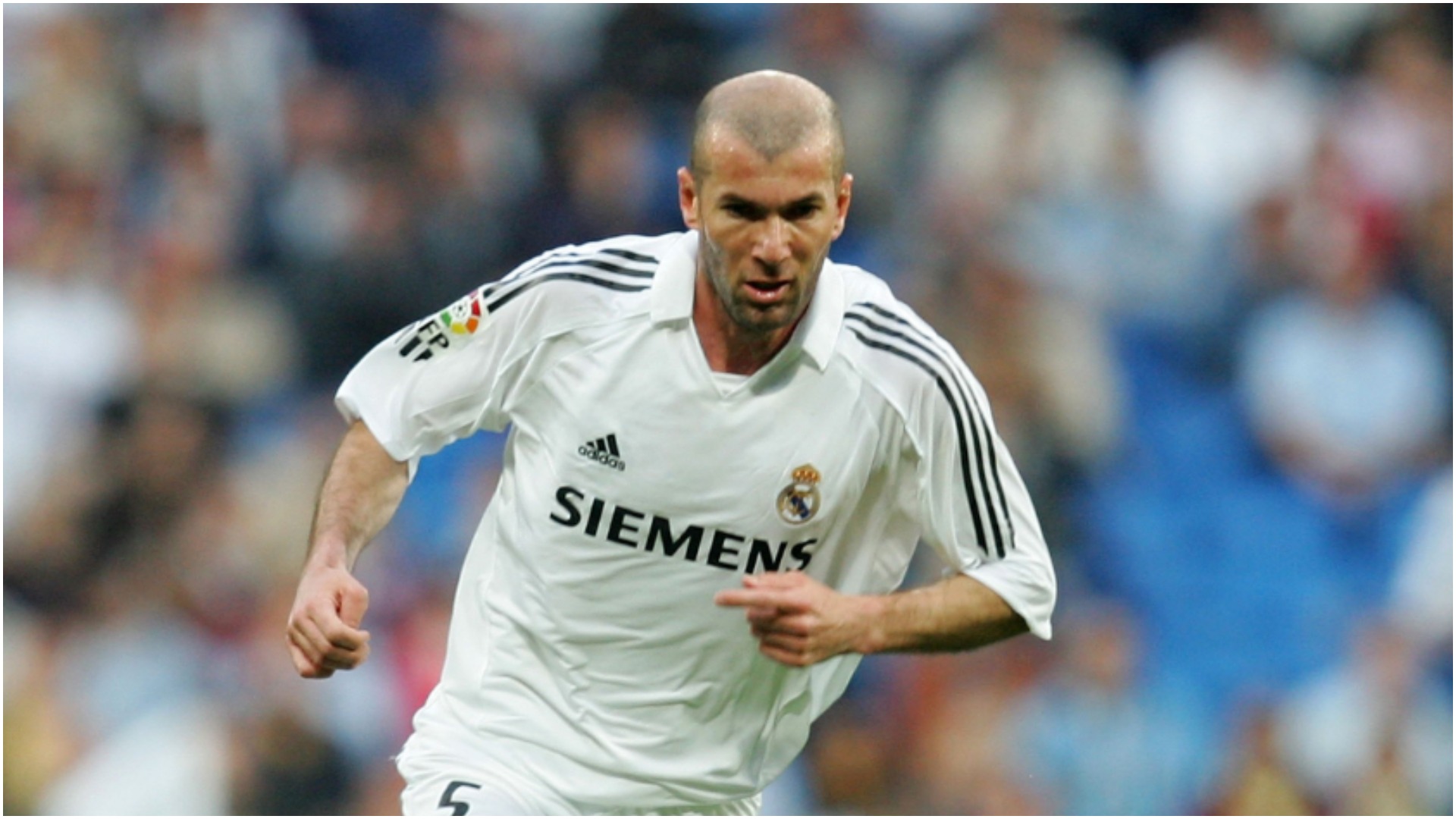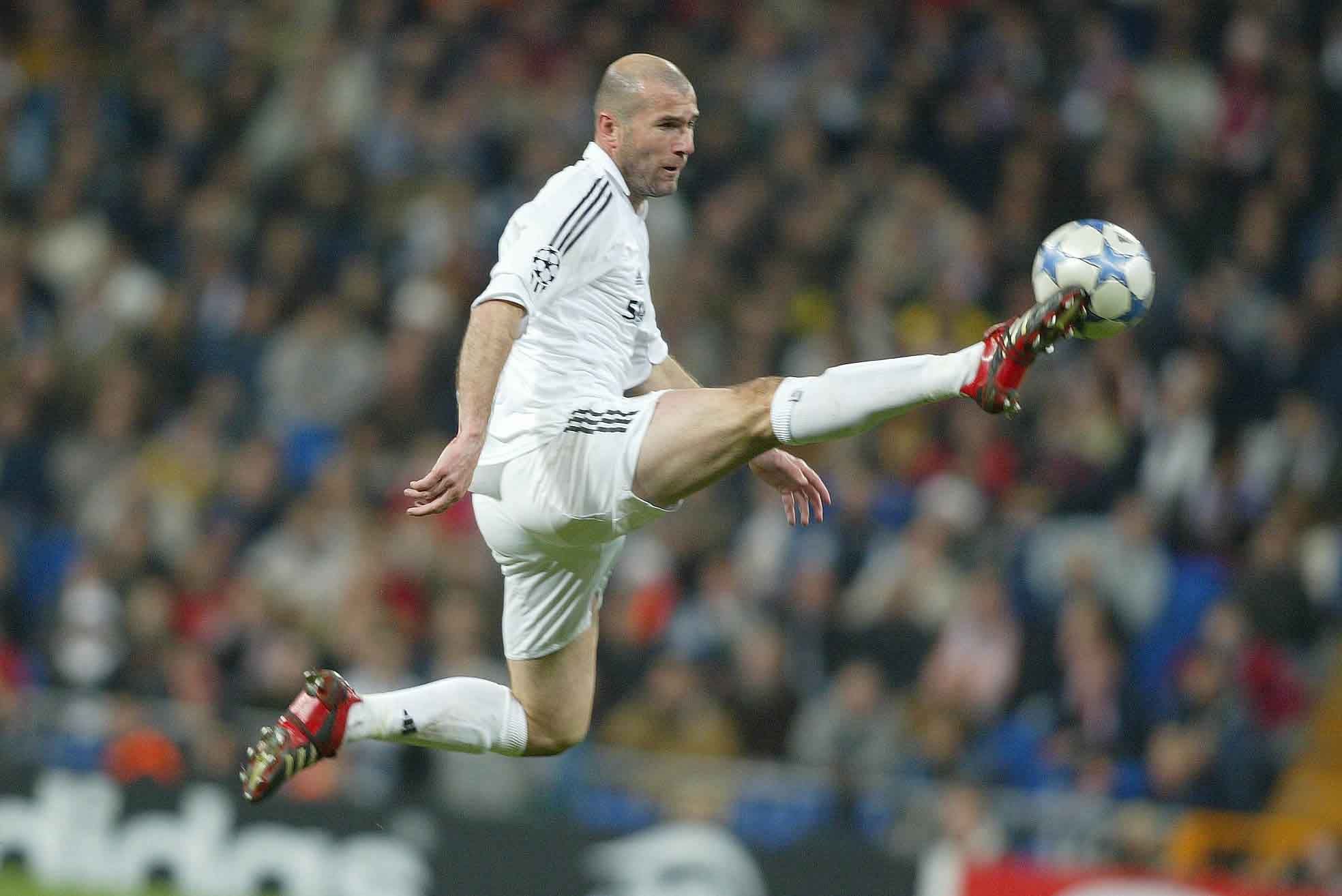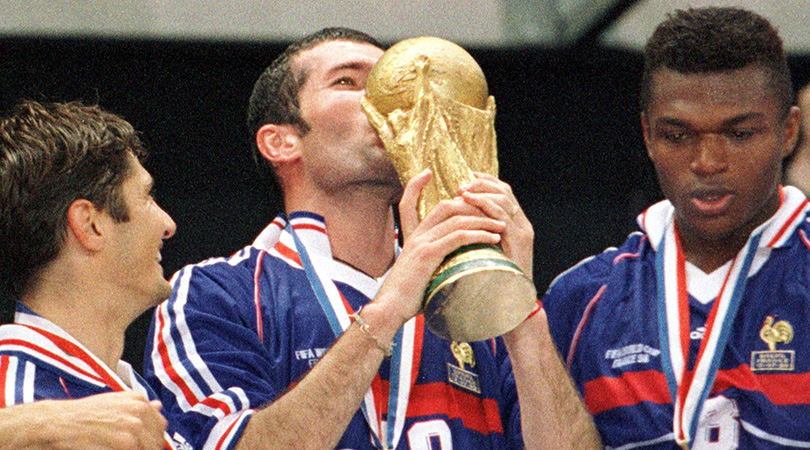A Journey of Brilliance from Player to Managerial Greatness
Introduction
Zinedine Zidane's association with Real Madrid is a storied saga that intertwines the realms of footballing brilliance, managerial acumen, and the unyielding pursuit of excellence. From his early days as a player to his unprecedented success as a manager, Zidane's journey with the club has left an indelible mark on its history and the broader landscape of football.
Zinedine Zidane: The Player
Zinedine Zidane, born on June 23, 1972, in Marseille, France, emerged as one of the greatest footballers of his generation. His playing career at the highest level spanned over 17 years, during which he showcased remarkable technical skill, vision, and an innate ability to control the tempo of games.
Early Career and Rise to Prominence
Zidane's early footballing education began in the streets of La Castellane, Marseille, where he honed his skills playing with friends and older boys. He joined Cannes at the age of 14 and made his professional debut with the club in 1989. His talent quickly caught the attention of bigger clubs, leading to a move to Bordeaux in 1992, where he began to flourish.
At Bordeaux, Zidane's elegant playing style and creativity in midfield started to define him as a player of immense potential. His performances drew interest from top clubs across Europe, ultimately resulting in a record-breaking transfer to Juventus in 1996.
Juventus Years: Establishing Greatness
Zidane's five seasons at Juventus were marked by numerous individual accolades and team successes. He played a pivotal role in Juventus winning two Serie A titles and reaching the UEFA Champions League final twice. His blend of grace and power, exemplified by his iconic goals and assists, solidified his reputation as one of the best midfielders in the world.
During his time at Juventus, Zidane's leadership qualities and ability to dictate play from midfield earned him the admiration of fans and peers alike. His performances in the 1998 World Cup, where he led France to victory, further enhanced his stature as a footballing icon.
Galáctico Era and Zidane's Arrival at Real Madrid
In 2001, Zidane made a sensational move to Real Madrid, becoming the centerpiece of Florentino Pérez's ambitious Galácticos project. The transfer fee of €77.5 million was a world record at the time, underscoring Zidane's status as one of the game's premier talents. At Real Madrid, he joined a star-studded lineup that included Ronaldo Nazário, Luis Figo, and Raúl González.
Zidane's impact at Real Madrid was immediate and profound. His vision, passing ability, and knack for scoring crucial goals quickly endeared him to the club's passionate fanbase. His iconic volley in the 2002 UEFA Champions League final against Bayer Leverkusen remains one of the most memorable moments in football history, sealing Real Madrid's ninth European Cup triumph.
Throughout his five seasons at Real Madrid, Zidane's consistency and brilliance helped the club capture numerous domestic and international honors. He won the La Liga title in 2003, as well as the UEFA Super Cup and FIFA Club World Cup.
Retirement and Legacy as a Player
Zidane retired from professional football after the 2006 World Cup, where his career ended in controversy with a red card in the final for headbutting Marco Materazzi. Despite the unfortunate end, Zidane's legacy as a player remains untarnished. He won numerous individual awards, including the FIFA World Player of the Year three times (1998, 2000, 2003), and was widely regarded as one of the greatest midfielders of all time.
Zinedine Zidane: The Manager
After retiring from playing, Zidane transitioned into coaching and returned to Real Madrid in a different capacity. His journey as a manager would prove to be just as remarkable as his playing career, as he guided the club to unprecedented success in a relatively short period.
Early Coaching Career and Return to Real Madrid
Zidane initially took up coaching roles within the Real Madrid organization, working with the youth teams and gaining valuable experience. In January 2016, he was appointed as the manager of Real Madrid Castilla, the club's reserve team, with the aim of developing his coaching credentials.
Less than a year later, in January 2016, Zidane was thrust into the spotlight once again when he was appointed as the first-team manager of Real Madrid, following the dismissal of Rafael Benítez. His appointment was met with skepticism by some, given his lack of managerial experience at the highest level.
Achievements as Real Madrid Manager
However, Zidane quickly silenced any doubts with a string of impressive performances and results. In his first full season in charge (2016-2017), he led Real Madrid to a historic La Liga and UEFA Champions League double, becoming the first manager in the Champions League era to win the trophy in consecutive seasons.
Under Zidane's guidance, Real Madrid played a brand of attacking football that thrilled fans and pundits alike. His tactical acumen, combined with a deep understanding of the club's culture and ethos, allowed him to manage and motivate a squad filled with world-class talent.
Zidane's success continued in subsequent seasons, as he added another UEFA Champions League title in 2017-2018 and a La Liga title in 2019-2020 to his managerial resume. His ability to navigate the pressures of managing a club as prestigious and demanding as Real Madrid cemented his reputation as one of the top coaches in world football.
Departure and Return
In a surprising turn of events, Zidane resigned as Real Madrid manager in May 2018, citing the need for a change and a break from the intense demands of the job. His departure left a void at the club, as fans and players alike expressed their admiration and gratitude for his contributions.
However, Zidane's absence would prove to be temporary. In March 2019, he returned to Real Madrid following a tumultuous period for the club under different managers. His second tenure saw him continue to achieve success, including another La Liga title in 2019-2020 and a UEFA Super Cup.
Coaching Style and Philosophy
Zidane's coaching style is characterized by a focus on fluid attacking play, defensive solidity, and a strong emphasis on man-management. He is known for his calm demeanor on the sidelines and his ability to make decisive tactical adjustments during matches. His understanding of player psychology and his knack for getting the best out of his squad have been pivotal to Real Madrid's success under his tenure.
Conclusion
Zidane and Real Madrid's Enduring Legacy
Zinedine Zidane's journey with Real Madrid is a testament to his enduring legacy as both a player and a manager. From his early days as a prodigious talent to his transformation into a managerial maestro, Zidane has left an indelible mark on one of the world's most storied football clubs.
His ability to seamlessly transition from the pitch to the dugout and achieve unprecedented success speaks volumes about his footballing intelligence and his deep-rooted connection with Real Madrid. Zidane's impact extends beyond trophies and titles; it is reflected in the admiration and respect he commands from players, fans, and football pundits worldwide.
As Zidane continues to navigate the challenges and triumphs of football management, his legacy at Real Madrid remains secure. Whether as a player orchestrating moments of magic or as a manager guiding the club to new heights, Zinedine Zidane's name will forever be synonymous with excellence, grace, and the pursuit of greatness at Real Madrid.






/cdn.vox-cdn.com/uploads/chorus_image/image/34774903/493625319.0.jpg)



